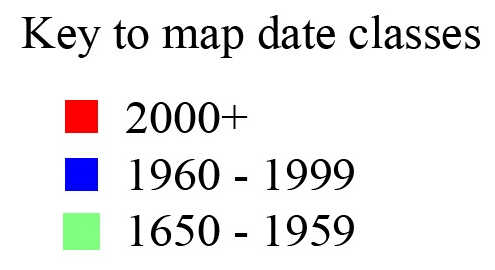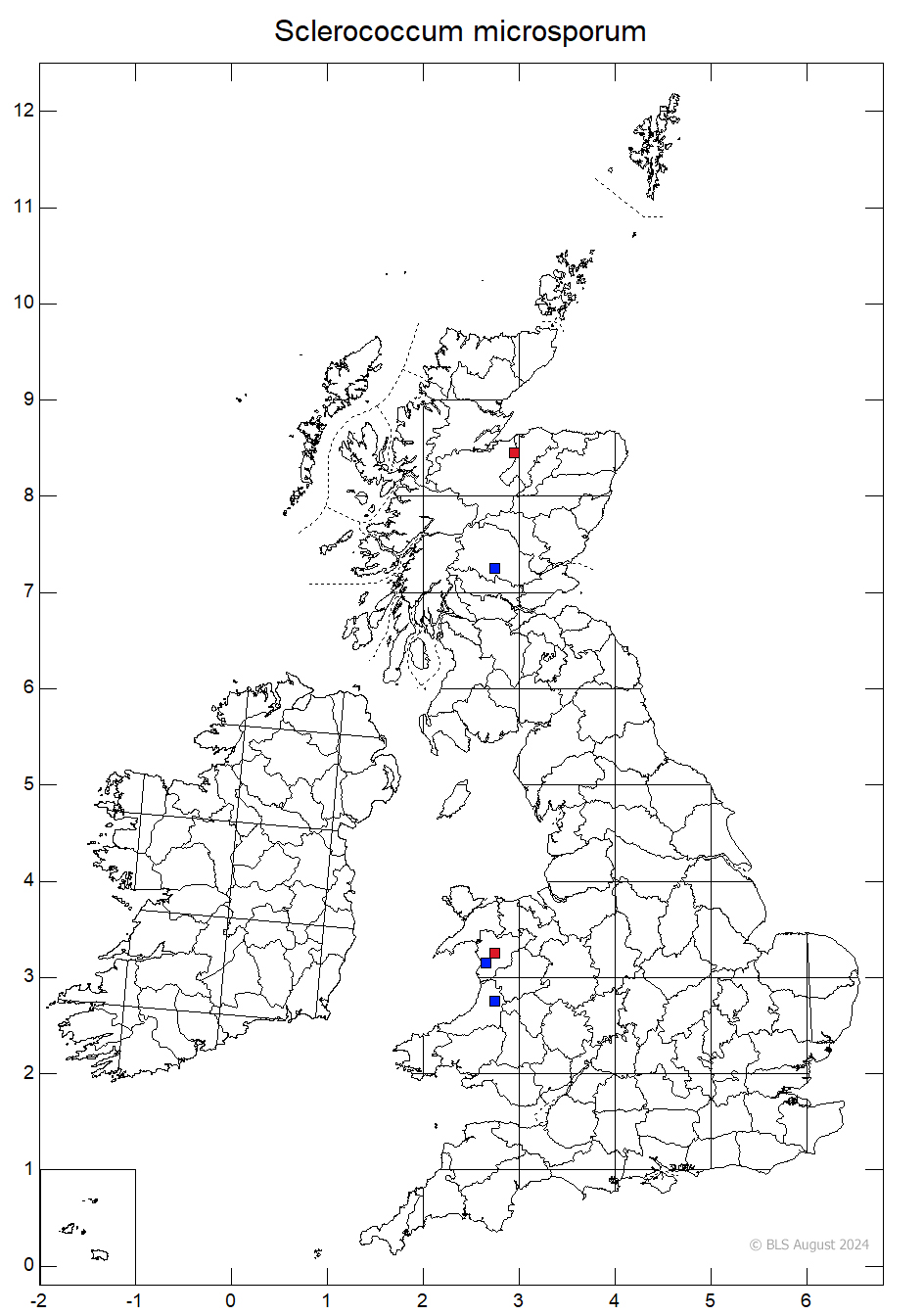A lichenicolous fungus that forms small blackish disks on a variety of lichens in old woodlands. Rarely recorded, but very distinctive under the microscope, due to the asci being packed with up to 80 small grey to brown one septate spores.
Thallus absent (lichenicolous). Apothecia sessile, slightly constricted at the base, 0.3–0.7 mm diam., dark brown to almost black, flat, with a thin persistent concolorous margin. Exciple of radially arranged cells, brown in the inner tissues, grey-black in the outer cells, K+ greenish; hymenium 50–60 µm tall, I+ deep blue; hypothecium dark brown, composed of interwined hyphae. Paraphyses with capitate apices with deep brown-black gel on the surface, K+ greenish. Asci clavate, 24–40 (–80)-spored. Ascospores ellipsoidal, 1-septate, not or barely constricted at the septum, brown, grey when young, (4–) 5–7 (–8) × 2–3 (–3.5) µm. Conidiomata not known.
The multispored asci are unusual in the genus, but there are no sequences available to confirm its placement. It appears not to be host-specific, and was originally described from Catinaria atropurpurea in northern Spain. See also Hawksworth (1994).
On thalli of Anisomeridium ranunculosporum, Bacidia rubella, Bryobilimbia sanguineoatra and Parmeliella thriptophylla. All records by 2025 were from old woodlands where the fungus was parasitising old woodland or old tree associated lichens.

A few widely scattered records, Scotland (E. Inverness, Mid Perthshire), Wales (Cardigan, Merioneth), England (New Forest, Hampshire).
Not assessed, but appears rare and confined to old woodlands and parasitising ancient woodland or veteran tree lichens, so potentially threatened and hence it is be best regarded as Data Deficient.
Cannon, P., Coppins, B., Aptroot, A., Sanderson, N. & Simkin, J. (2025). Miscellaneous lichens and lichenicolous fungi, including Aphanopsis and Steinia (Aphanopsidaceae), Arthrorhaphis (Arthrorhaphidaceae), Buelliella, Hemigrapha, Melaspileella, Stictographa and Taeniolella (Asterinales, family unassigned),Phylloblastia (Chaetothyriales, family unassigned) Cystocoleus (Cystocoleaceae), Sclerococcum (Dactylosporaceae), Eiglera (Eigleraceae), Epigloea (Epigloeaceae), Euopsis (Harpidiaceae), Lichenothelia (Lichenotheliaceae), Lichinodium (Lichinodiaceae), Melaspilea (Melaspileaceae), Epithamnolia and Mniaecia (Mniaeciaceae), Lichenostigma (Phaeococcomycetaceae), Pycnora (Pycnoraceae), Racodium (Racodiaceae), Chicitaea and Loxospora (Sarrameanaceae), Schaereria (Schaereriaceae), Strangospora (Strangosporaceae), Botryolepraria and Stigmidium (Verrucariales, family unassigned), and Biatoridium, Mycoglaena, Orphniospora, Piccolia, Psammina and Wadeana (order and family unassigned). Revisions of British and Irish Lichens 57: 1–78.
Hawksworth, D.L. (1994). Notes on British lichenicolous fungi: VII. Lichenologist 26: 337–347.
Text by Neil A. Sanderson based on Cannon et al (2025).





